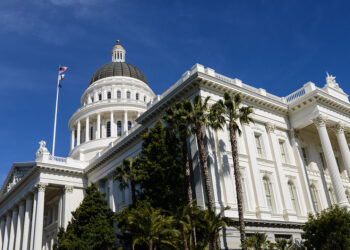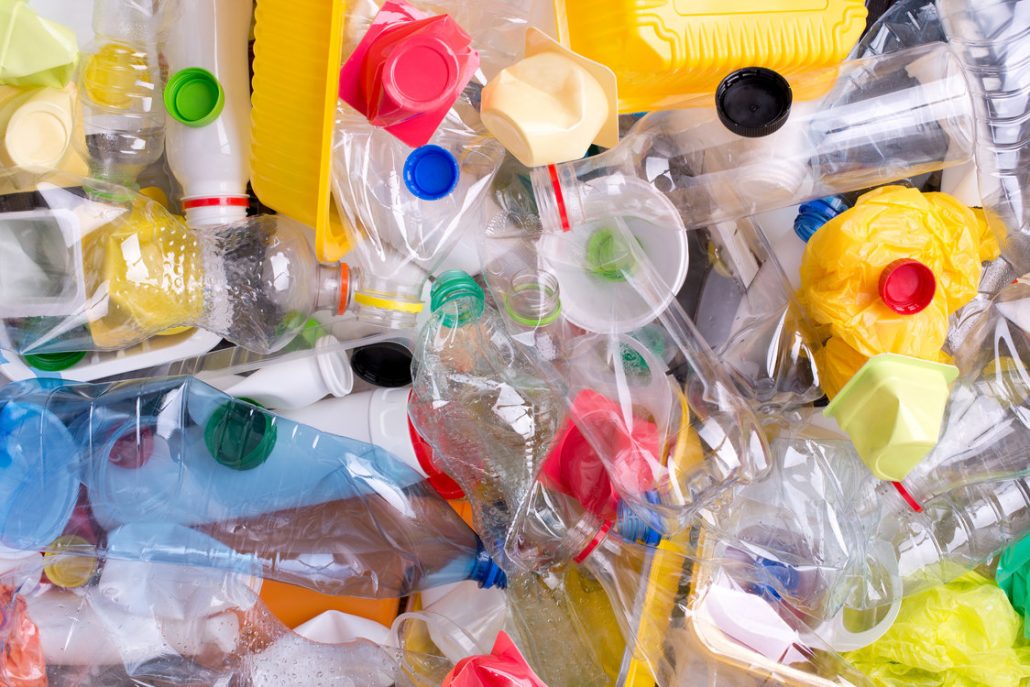Two new policy proposals seeking to improve components of the U.S. recycling system came up during a Congressional hearing last week, and industry stakeholders offered their thoughts on how the federal government can best support the recycling sector.
The hearing, titled “Beyond the Blue Bin: Forging a Federal Landscape for Recycling Innovation and Economic Growth,” was held July 16 before the Environment Subcommittee of the House Energy & Commerce Committee.
During the hearing, Keefe Harrison, CEO of The Recycling Partnership, referenced the Cultivating Investment in Recycling and Circular Local Economies (CIRCLE) Act, which was introduced later that day. Its chief sponsors are Reps. Brian Fitzpatrick, Republican of Pennsylvania, and Tom Suozzi, Democrat of New York.
The legislation would use tax credits to incentivize recycling infrastructure investments, representing a different tack than the grant funding approach the Department of Energy employed under the Biden administration.
The CIRCLE Act “would establish a recycling infrastructure investment tax credit to stimulate investment in the domestic recycling economy and reward those who make investments in American businesses and communities,” Harrison said in testimony to the House committee. “Also bipartisan and supported by a wide array of stakeholders, the CIRCLE Act would accelerate investment in recycling while reducing the burden on governments at all levels — including the federal government — to fund recycling systems.”
The bill creates a “30% investment tax credit — phased out over 10 years — for qualified investments in new or upgraded recycling infrastructure,” the sponsors said in a release. “Municipalities investing directly in waste reduction efforts will receive a direct rebate, ensuring local governments can modernize without passing the burden on to taxpayers.”
The legislation has drawn wide support, not only from The Recycling Partnership but from the Recycled Materials Association, Solid Waste Association of North America, Association of Plastic Recyclers, Closed Loop Partners and other industry associations, as well as specific companies including Advanced Drainage Systems and Atlantic Packaging.
Focusing on municipal recycling improvements is a key to boosting plastic recycling, said Ross Eisenberg, president of America’s Plastic Makers – an initiative of the American Chemistry Council – who was also an expert witness at the hearing.
“If we fix sortation, if we fix collection, if we fix some of those basic services, then we have the supply, and we’ll probably have a lot more folks investing in recycling,” Eisenberg said.
Separate legislation creates voluntary labeling standard
Later during the hearing, Rep. Randy Weber, a Republican of Texas, said he has a key priority this year to work with industry stakeholders to introduce the Packaging Claims and Knowledge (PACK) Act of 2025. This bill “would create the framework to establish a consistent national standard for recyclability labeling, avoiding a patchwork of state regulations.”
“This is not about creating burdensome red tape, so I don’t want all the naysayers to start going down that path,” he said. “It’s actually about cutting through the red tape, to create a uniform, pro-growth regulatory framework that helps innovators innovate, it helps consumers make informed choices, helps industry lead the way.”
It would create a voluntary accreditation, he added, rather than a mandate.
Dan Felton, president of the Flexible Packaging Association and an expert witness at the hearing, said his group is supportive of such a voluntary, federal standard with jurisdiction through a federal agency. It would “help significantly with helping consumers to understand how to recycle and where to recycle things,” he said.
“That will give us opportunity as an industry to be able to feel support, as it were, for these products that are being recycled, our packaging that’s being recycled, and, as well, the recycled content we can get from that,” he said.
The bill has not yet been introduced.
Chemical recycling draws varied response
Rep. Paul Tonko, Democrat of New York, described the tools under the umbrella of chemical recycling as “controversial technologies, and not without good reason.” All available tools should be considered in processing end-of-life materials, he noted, but “we must ensure that these technologies actually displace virgin production and do not introduce environmental or public health risks.”
“At this stage, I have not seen much evidence that these technologies are succeeding by these metrics, with much of their output being used as fuels rather than new recycled products,” Tonko said.
Eisenberg of ACC said one of the biggest constraints holding back the chemical recycling sector is regulatory uncertainty. ACC is a major proponent of these technologies, which it refers to as “advanced recycling.”
Under President Joe Biden, “EPA proposed a rule that was somewhat confusing for manufacturers on how to handle the product that was coming out of the recycling stream at an advanced recycler,” he said. “And all of a sudden, their customers said, ‘We don’t really know if we can do this anymore, because we don’t know if this is going to continue.’ Companies that are looking to build new facilities, same kind of situation.”
He noted chemical recycling is “an early stage commercialization-type industry, and it is moving quickly,” and as such, it at times moves faster than regulators, who are having trouble understanding the industry.
“We really would like either EPA or frankly Congress to try to settle this once and for all, and basically just level the playing field,” Eisenberg said. “We’re not saying preferential treatment, just let us compete. Give this thing a shot, let it develop just like any other technology, and hope that it succeeds.”
Harrison of The Recycling Partnership said any time chemical recycling is discussed, it’s important to be specific about the different technologies and how they’re being used, especially when considering whether they should be considered “recycling” or not. That echoes the organization’s position published in early 2024.
Industry calls on US to engage in plastic treaty negotiations
ACC also called on the federal government to take a larger role in negotiations on a global plastic treaty, which has been in development since 2022. The U.S. made a substantial pivot in its policy position last summer, moving to support plastic production limits ahead of what was designed to be the final treaty negotiating session. But rather than conclude, the talks were extended into a sixth round that will kick off in August.
Eisenberg said the U.S. shift to support plastic production caps represented a “wish list of policies the U.S. government did not have the legal authorities to implement (and therefore
could not sign).” Between that and the 2024 U.S. presidential election taking place shortly before the December negotiations, suggesting the U.S. policy priorities would likely shift again soon, “it was clear that the U.S. was not in a position to broker a final agreement — and the rest of the world knew it,” Eisenberg said.
“Other nations stepped into the deal-maker role, and I assure you they were not negotiating with U.S. interests in mind,” he added.
Eisenberg said ACC strongly encourages U.S. participation in the treaty negotiations, noting that the U.S. position in relation to the Basel Convention provides an example of what happens when the country doesn’t engage in global treaty development. The U.S. is one of only a few countries globally that is not a party to the Basel Convention, leaving it in an often disadvantaged position as the treaty covers more and more end-of-life materials, including recycled plastics as of 2021.
The non-party status leaves the U.S. on the peripheries of Basel negotiations and unable to trade Basel-covered materials with party countries, unless there are additional trade agreements in place with specific countries.
“To effectively shape global standards, the U.S. must be positioned with clear legal authorities and a coordinated interagency approach,” Eisenberg said. “When we’re not at the table in a meaningful way, others step in — and not always in ways that reflect our interests.”
The next round of plastic treaty negotiations begins Aug. 5.






























